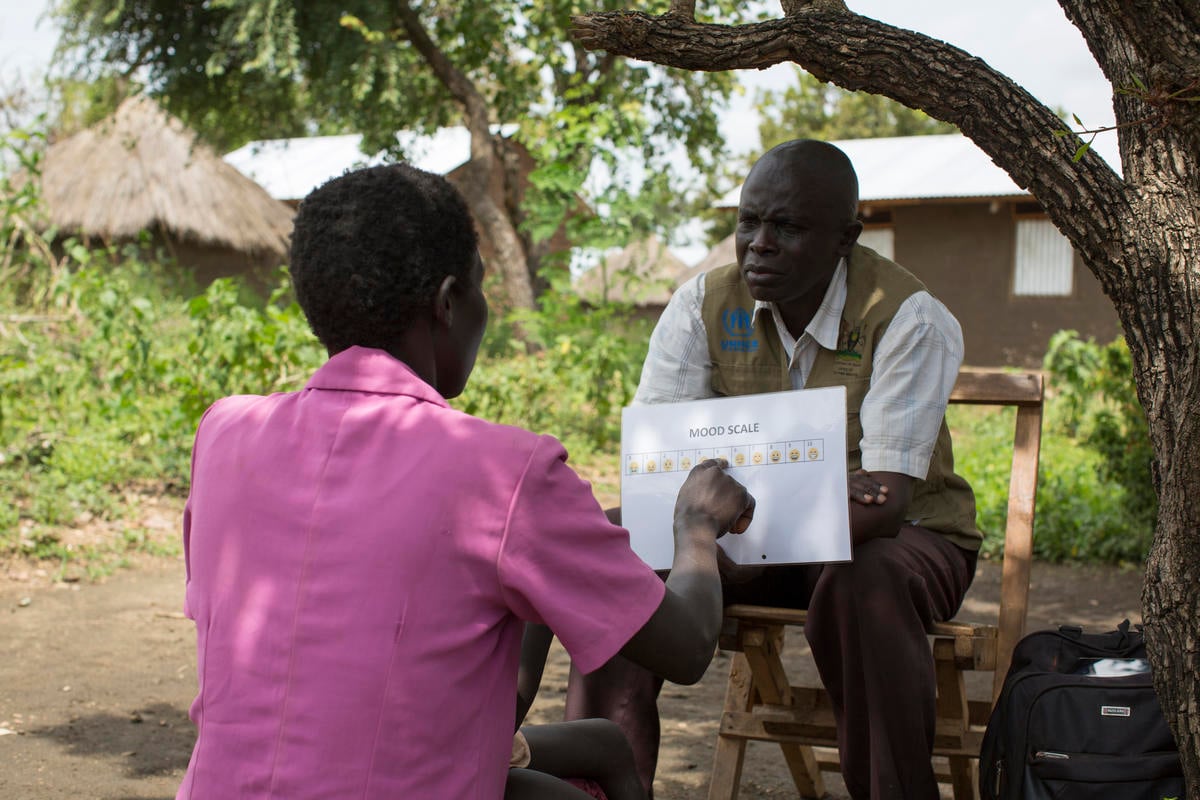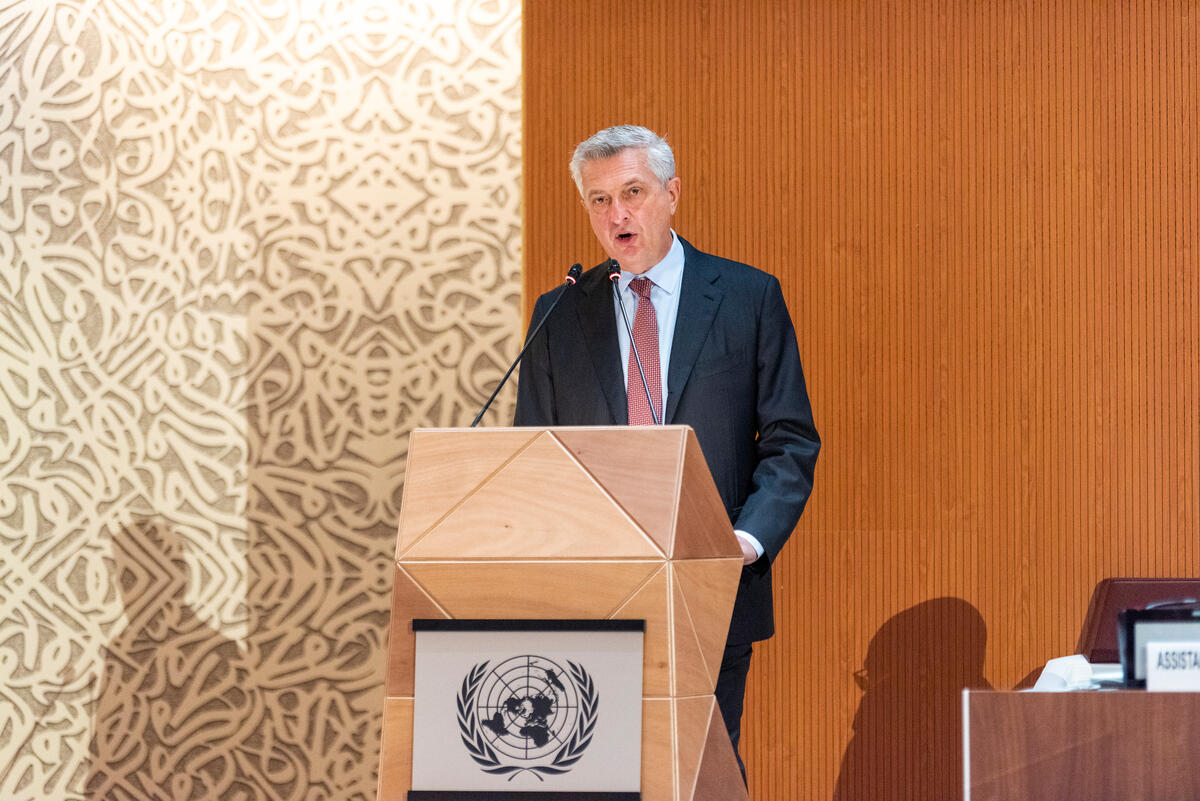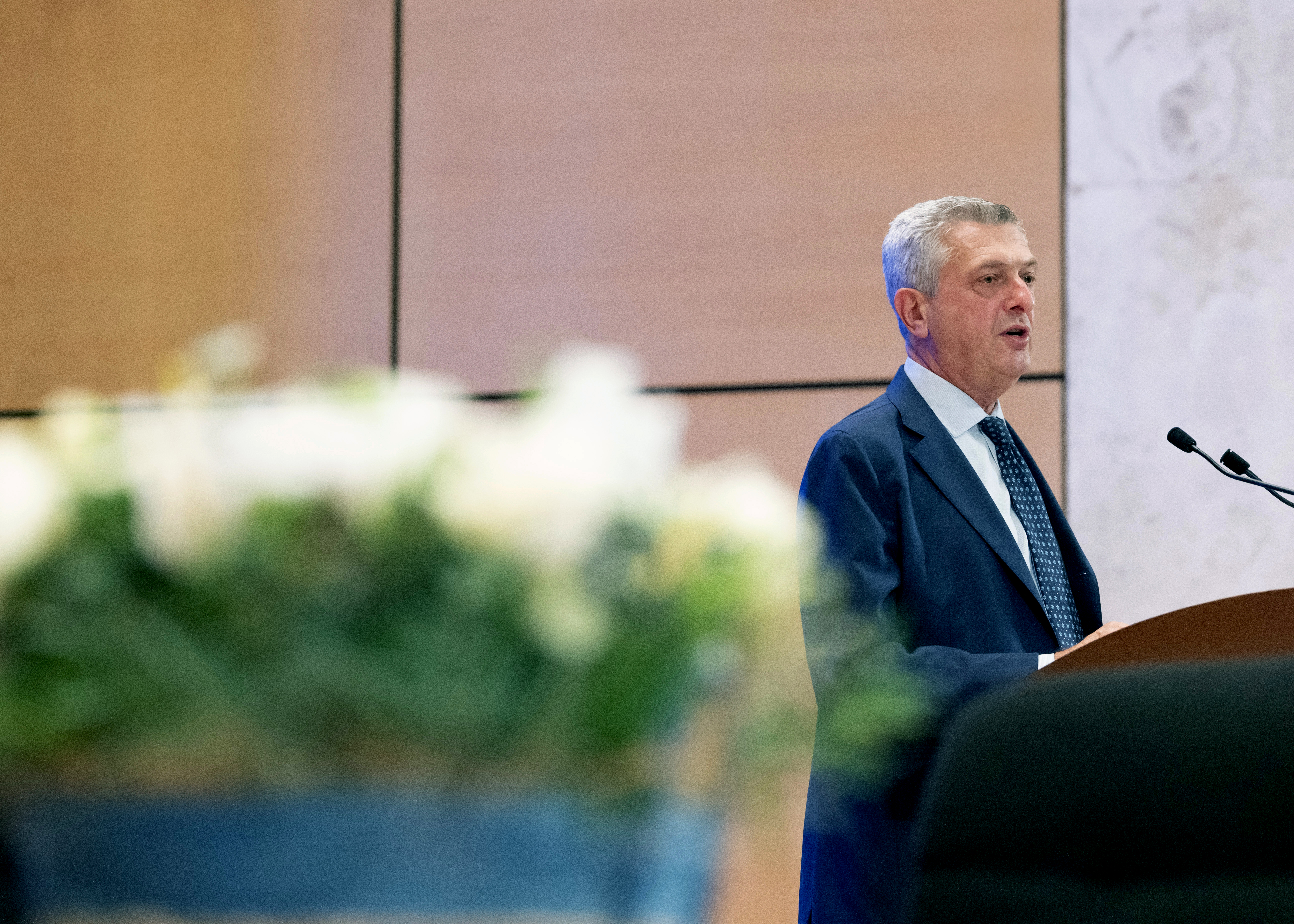UNHCR: refugee protection a necessity, not a policy choice
UNHCR: refugee protection a necessity, not a policy choice
7 October 2004
GENEVA - UNHCR's top refugee protection official reminded governments Thursday that "refugees are people, not statistics or global trends" and that their protection is "a humanitarian necessity, not a policy choice."
Reporting on refugee protection concerns at the annual meeting of UNHCR's 66-nation Executive Committee, Director of International Protection Erika Feller presented a mixed picture of declining overall numbers amid an increasingly hostile environment for refugees and asylum seekers and those trying to help them.
On the positive side, she said, global refugee figures have dropped along with a dramatic increase in repatriation and other solutions in places such as Afghanistan and many parts of Africa. Since 2001, the number of people of concern to UNHCR worldwide has fallen by nearly 22 percent, to 17.1 million this year. Feller said there has also been greater interest among some governments in focusing help on regions of origin, as well as on promoting more burden-sharing in seeking long-term solutions.
More worrisome, however, is the increasingly hostile environment in which refugees and asylum seekers have found themselves in many parts of the world today.
"The spirals of violence and human rights violations which produce refugees have continued to take their toll," Feller said on the fourth day of the five-day meeting of UNHCR's governing body. "Efforts to assist and protect the victims have been seriously compromised by the direct targeting of humanitarian personnel through violence and assassination."
People continue to suffer in a number of countries where brutality, disregard of basic rights, economic marginalisation, discrimination, exclusion or conflict are features of everyday life, she said. People need, and understandably seek, protection. The 1951 Refugee Convention was drafted in recognition of this fact and confers an entitlement to protection on persons who are otherwise extremely vulnerable because they are temporarily outside the normal framework of state protection. This, Feller said, is the continuing contribution of the 1951 Refugee Convention. Despite its enduring relevance, however, UNHCR was "dismayed to hear voices of dissent trying again to plant the seeds of doubt" about the Convention, she said.
"It is difficult to imagine that the right not to be sent back to be killed can be contested by any right-thinking person," she said. "Similarly, non-discrimination, the right to be heard, and access to fair and due process of law are tenets on which civilised societies are solidly built. The Convention gave voice and force to rights for refugees. It brought into play some basic standards of human decency and made them relevant to conflict or the pursuit of national interests."
While there was much talk of a new refugee and asylum reality, Feller said, war and persecution are old, even ancient, realities. So, too, are the refugees they produce.
"The problems of the individual refugee are perennial," she said. "Confronting intolerance and fear, being a foreigner in someone else's land, searching for a safe haven and waiting for solutions, these are recurring features of the refugee experience. The 'refugee problem' and the problems of refugees are two different things."
Feller expressed alarm at the failure of the current asylum debate in certain countries to "properly take into account the problems of refugees." Thus, she said, one focus of UNHCR's advocacy efforts "is to remind that refugees are people, not statistics and global trends. Their protection is a humanitarian necessity, not a policy choice."
While appreciating the concerns of states about sorting out the confusing mix of persons who present themselves at frontiers as asylum seekers, Feller stressed that there must be a recognition that refugees are not classical migrants.
"There are considerable dangers in mixing up refugees and migrants as if they are one and the same," she said. "Although we certainly see the interlinkages, refugee protection involves a special set of rights and reciprocal duties on states that is in danger of being eroded when the debate on asylum is seen solely, or largely, in terms of illegal or legal migration. We need to guard against over-robust approaches to keep migrants from borders, without differentiating between the reasons which propel people to seek to come across. Migration concerns are skewing the approach to refugee protection, we fear. "
UNHCR was particularly concerned at how global migration trends and international crime and terrorism have affected the readiness of states to receive refugees. When borders close to asylum seekers fleeing persecution or conflict, various reasons are usually given: the people were brought by smugglers; other states have a greater responsibilty to receive them; the conflict is not a recognised one; state security takes precedence. But whatever the reason, Feller said, the right to seek asylum, the right to flee for your life and to protect your family, often take second place.
UNHCR supports efforts to combat international crime and terrorism, Feller said, adding that genuine refugees are themselves escaping persecution and violence, including terrorist acts. International refugee instruments should not be characterized as providing a safe haven for terrorists. On the contrary, Feller said, they specifically provide for their exclusion from refugee protection.
"The tendency in some countries towards criminalisation of asylum seekers and refugees is very worrying," she said. "While there may be persons in both categories associated with serious crime, this is no justification for the majority being damned by association with the few. Equating asylum with a safe haven for terrorists is not only legally wrong and unsupported by the facts, but it serves to vilify refugees in the public mind and promotes the singling out of persons of particular races or religions for discrimination and hate-based harassment."
Feller also expressed "disquiet" over recent challenges by some states who, in effect, told the agency it "should stick to making protection and solutions a reality in other parts of the world only." She said there are no geographic limitations to UNHCR's mandate.








